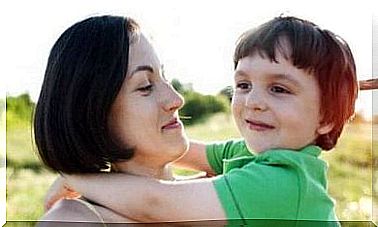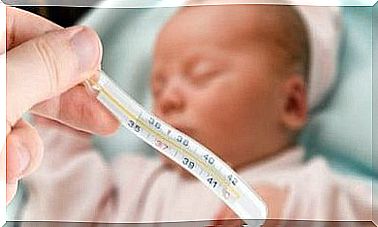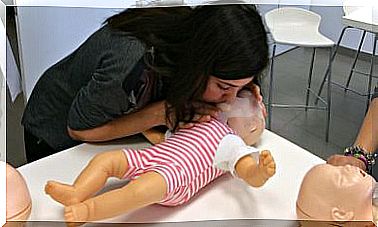Why Do Children Bite And How Do You Stop Them?
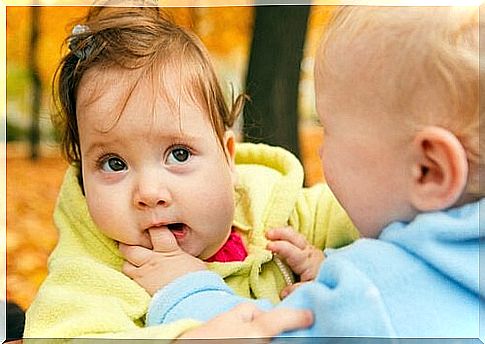
“Why do children bite?” Many parents wonder this. Biting is common in children between the ages of 1 and 3 and for a variety of reasons.
Babies and toddlers use their mouths to:
- things to discover
- to learn
- connect with the world around them
After all, the mouth is one of the first parts of the body whose sensitivity develops rapidly.
In addition, when babies are teething, they need something to soften their gums. Without parental supervision, babies would bite and chew on just about anything.
Children between 1 and 3 years also use this behavior in a social context. But why do children bite? Usually it is to demand attention or to get a toy.
Sometimes children also bite when they are nervous or frustrated, for example during a major change in their life. This habit will usually go away on its own. For example, when they go to daycare and begin to develop communication skills.
Of course, there can be other reasons why children bite. Emotional problems for example. That is why we have to keep a close eye on children so that we can identify this behavior in time.
Below we will cover the main reasons why children bite.

Why do children bite: 5 reasons
According to studies by the American National Society for the Education of Young Children , there are 5 main reasons why children bite.
To discover
Babies quickly become accustomed to the habit of biting. That’s because of their irrepressible curiosity for everything that surrounds them. The mouth develops very quickly.
Babies and toddlers use all their senses to discover the world. For example, they can bite the hand of another child. When this happens, it is enough to make it clear to your child that this is not allowed.
Attention
One of the main reasons children bite is to get the attention of a parent or another child. It is very important that the child is made aware that this is not allowed and that this is painful for the other person.
Tell him in a stern way that they are not allowed to do that anymore. Teach them to express themselves with words without hurting anyone else.
Self defense
Children may bite when confronted with new children in a new environment.
Often a child will bite to defend himself against others. In this case, try to assure them that they are safe and that no one wants to hurt them.
Check
Children have a great need for autonomy and control. They may feel stronger when they discover the effects on their environment when they bite.
It is important that this behavior is corrected. This can be done by:
- teach good behavior
- share toys
- say thank you
- respect other people
Teach your child that they can gain the respect of other children without biting.
Change
An underlying emotional problem or a major change can also cause this behavior. This can happen, for example, when a brother or sister comes to.
Moving can also cause children to start biting.
What can you do about this behavior?
Telling children that something is not allowed does not mean that they will therefore see the difference between good and bad. As they get older, children increasingly copy the behavior of those around them.
That is why it is important that the parents set a good example. Show that there are other ways to interact with people.
Use language to solve problems, switch things up, ask to borrow a toy, give hugs, be kind and respect others – all of these can be learned by example.
Show your appreciation when your child behaves well. This is how children learn that they should behave like this. For example, congratulate your child when it has been playing quietly with another child.
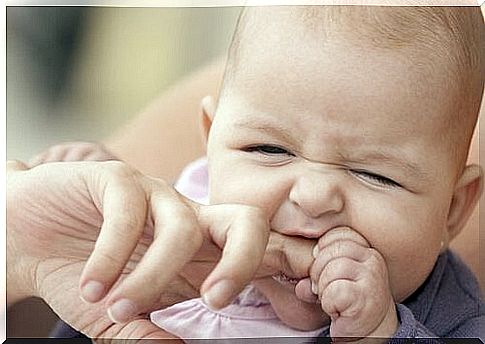
How do you make a child stop biting?
The first thing to do is observe your child. This way you can discover why the child bites. It will probably take some time to unlearn this behavior. Therefore, patience and understanding are crucial to achieve long-term results.
What can we do to make a child stop biting?
- Think about when and why your child bites.
- Keep an eye on your child when they are playing with other children. Your presence will reassure the child.
- Stay calm when your child bites someone. Calmly explain why it is wrong to bite. Make it clear that he or she should never bite anyone else. Food is the only thing allowed in their mouths!
- Ask other parents what method they use with their children. Maybe they can help.
- Try not to yell or punish your child. Try to understand them instead.
Know that children pick up all kinds of habits during their childhood. It is up to us to correct them if necessary. Most importantly, we understand the reasons why they behave this way.
Support your child at all times. If you really don’t know a solution, you can ask your parents for help. Maybe they know methods that you haven’t thought of yet.
